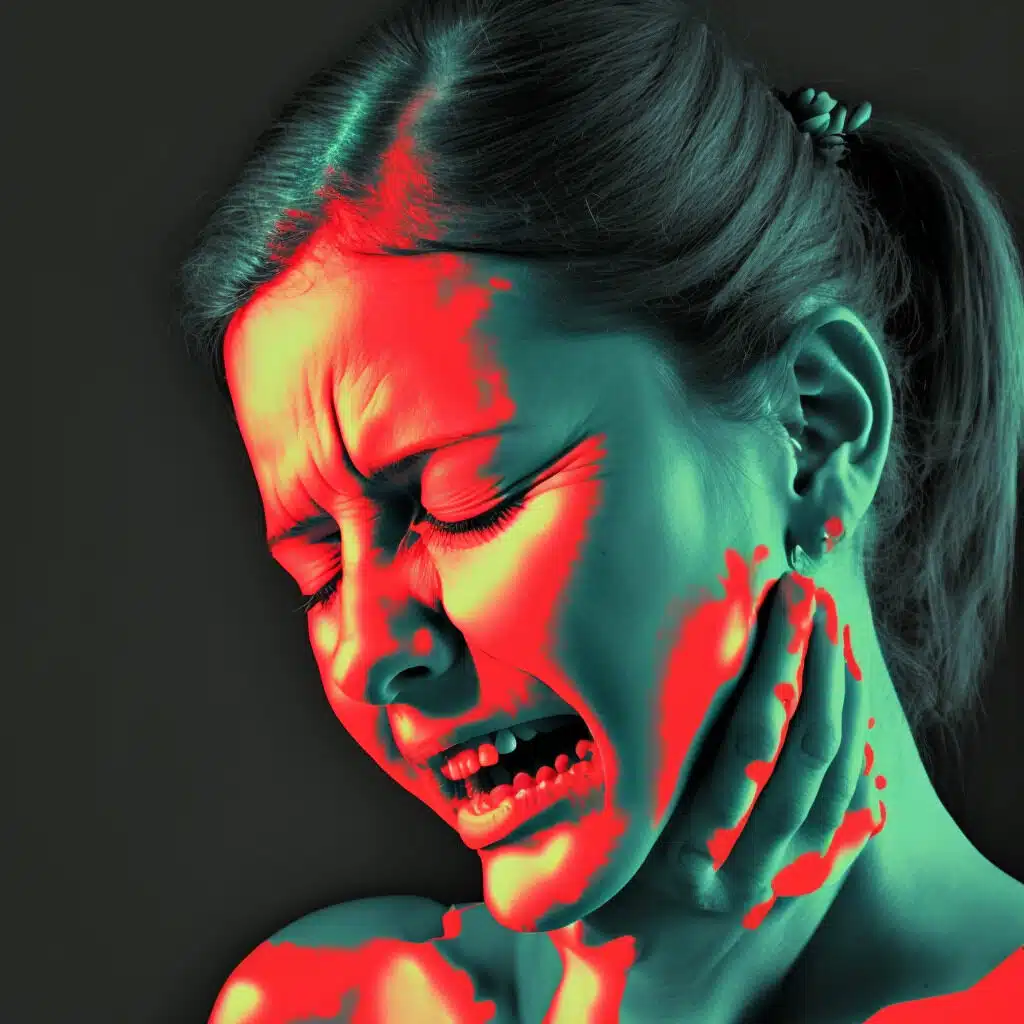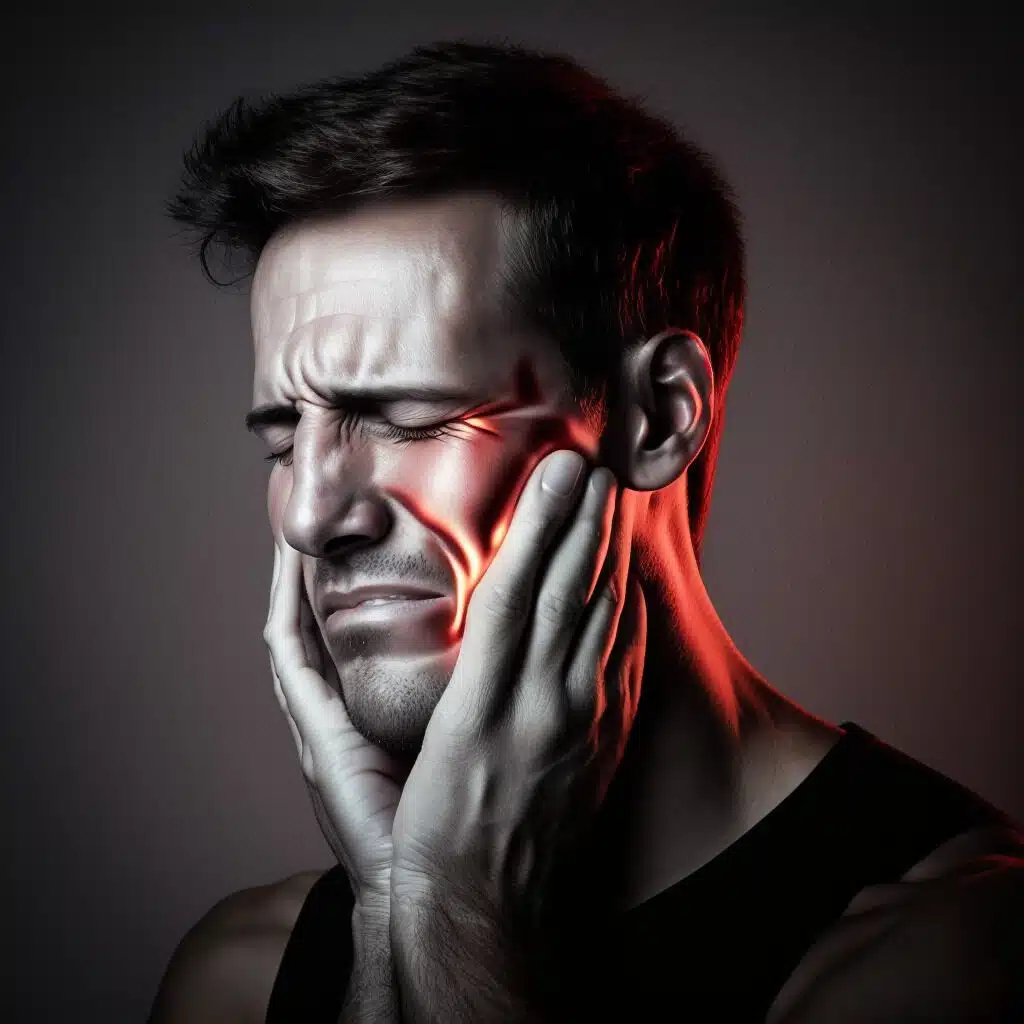Can Stress Cause Tooth Pain
Are you one of the many people who suffer from tooth ache, and wondering can stress cause tooth pain?

If so, then it's possible that stress is playing a role in your discomfort. Stress has an incredible ability to influence our physical health, and this includes dental issues such as gum inflammation and even toothaches.
In this article we'll explore how our mental well being can affect our teeth and why it’s important to take steps towards reducing stress levels to maintain healthy oral hygiene.
If you've ever experienced a throbbing sensation in your jaw or a sharp ache near the back of your mouth, then you know first-hand just how debilitating tooth pain can be. It often feels like there's nothing you can do but grit your teeth and wait for relief.
But what if your suffering could be lessened by simply taking care of yourself mentally? We're here to tell you that it might not be as far-fetched as it sounds!
The importance of looking after both our physical and mental well being cannot be overstated – especially when it comes to maintaining good oral health.
So, let's dive into this topic further and discover exactly how stress plays a part in causing toothache, as well as some tips on how to reduce its effects on us.
Effects Of Stress on Oral Health
The invisible force of stress can have an enormous impact on our overall health, including our dental health. Our mental and physical states are closely linked, so it's no surprise that stressful situations can result in various dental issues, such as jaw pain or sensitive teeth.
It is important to understand the relationship between chronic stress and its potential effects on your oral health – this knowledge could be key in helping you identify the cause of your pain and seek appropriate treatments for any dental problems that arise from it.
The body releases certain hormones when we're under pressure which can lead to an increase in acidity levels inside the mouth, reducing the amount of protective saliva and weakening tooth enamel over time. This allows bacteria to access areas they wouldn't normally reach, leading to infection and inflammation around the gums and other parts of the mouth.
Without proper care, these conditions may worsen if not treated promptly, causing further discomfort while damaging your smile in the process. By understanding how stress affects us physically and mentally, we can take steps towards bettering both our mental and dental health.
Symptoms Of Stress-Related Tooth Pain

Stress-related tooth pain can manifest in a variety of ways. Symptoms may include gum disease, persistent or recurring tooth sensitivity, and night grinding of the teeth (also known as bruxism).
When people experience high levels of stress, they tend to clench their jaw muscles more frequently which can lead to dental problems such as tooth pain and gum recession.
In addition to clenching your jaw muscles, other causes of bruxism include anxiety, depression, sleep apnea and postural problems. Managing stress is essential for preventing further damage caused by bruxism symptoms. T
here are many tools available for reducing stress levels such as relaxation techniques, healthy eating habits and physical activity. A night guard may also be prescribed if you suffer from frequent episodes of bruxism.
By understanding the psychological causes of tooth pain it’s possible to manage them effectively with lifestyle changes and appropriate treatment plans.
Psychological Causes of Tooth Pain
The psychological causes of tooth pain are often overlooked, yet they can be just as debilitating. In most cases, the cause of a stress-related toothache is not due to any underlying dental conditions such as tooth decay or temporomandibular disorders (TMDs).
Instead, the American Psychological Association identifies emotional symptoms of stress and anxiety that may manifest in physical forms, including intense toothaches.
More research is needed to understand how psychological effects trigger this kind of pain. However, according to the American Dental Association, there are certain clues that suggest a connection between stress and oral health issues like a persistent and unexplained toothache.
These include clenching one’s teeth during times of distress; consistently grinding one's teeth while sleeping; experiencing high levels of tension around the jaw; headache or neck ache in addition to the discomfort from the toothache; and feeling no relief after taking over-the-counter medications for sinus infection or other possible sources of pain.
In order to properly diagnose the source of a person's tooth pain it is important to consult with both their dentist and mental health provider who can work together to find an effective course of treatment that addresses both biological and emotional needs.
Diagnosing The Source of Tooth Pain
When it comes to diagnosing the source of tooth pain, there are a variety of causes that should be considered. Healthcare providers may recommend using a mouth guard for extreme stress and sleep bruxism, which can cause teeth grinding or clenching during sleep.

When we're stressed out, our immune system weakens which makes us more susceptible to certain disorders like sleep apnea or TMJ (temporomandibular joint) disorder. These issues all have the potential to cause severe toothache in your upper teeth.
Additionally, healthcare providers will evaluate other most common causes of toothaches such as dental caries (cavities), periodontal disease, fractured teeth or restorations, impacted wisdom teeth, root canal therapy or an abscessed tooth.
Additionally, they'll need to investigate other sources related to the oral cavity like sore jaw muscles from chewing too much gum or temporomandibular joint disorder (TMJ). According to the American Dental Association, these conditions often require more than just basic dental care for relief.
The next step is determining what treatments might provide some relief depending on your individual diagnosis.
Treatments For Stress-Related Tooth Pain
Fortunately, there are several steps you can take to reduce the risk of developing stress-related toothaches and treating them if they do occur.

First and foremost, regular dental cleanings are essential for maintaining good oral hygiene and preventing infection. In addition, prescription medications may be required for those with chronic pain or other underlying medical conditions.
Additionally, lifestyle changes such as reducing caffeine intake and avoiding smoking can help improve overall dental health and decrease the chances of developing any number of diseases related to stress.
Finally, seeking professional medical advice from qualified professionals should always be done when dealing with any type of jaw injury or gum disease associated with tension headaches or other forms of discomfort.
By taking proactive measures now, you can greatly reduce your chance of experiencing painful symptoms due to stress-related illnesses down the road. Regular check-ups at the dentist's office will ensure that your mouth remains healthy while allowing you to get ahead of any possible problems before they become too serious.
With proper care and maintenance, you'll soon find yourself enjoying a beautiful smile without worrying about what might come next!
Thoughts?
The bottom line is that stress can have a significant impact on your oral health, including contributing to tooth pain. It's important to recognize the signs of stress-related tooth pain so you can get treatment right away and prevent potential damage or even loss of teeth.

With prompt diagnosis and proper care, it's possible to manage stress-related tooth pain effectively and restore good oral health.
It may feel like the weight of the world is bearing down on your shoulders when you're suffering from chronic tooth pain due to stress – but don't worry! There are many things you can do to relieve stressful symptoms and regain control over your mouth’s health.
Exercise, relaxation techniques, counseling, and holistic therapies are just some of the strategies for managing stress in healthy ways that won't leave you with an unbearable ache in your jaw.
If you think that stress might be causing your toothache, act today by consulting a trusted healthcare professional who can help you diagnose and treat the underlying cause. You'll be back smiling brighter than ever before in no time – it's practically guaranteed!
FAQs
Can teeth hurt for no reason?
Teeth do not hurt for no reason, and pain can often be attributed to an underlying cause. However, can stress cause tooth pain? Yes, stress can contribute to tooth and jaw pain in many ways. Stress can lead to teeth grinding, clenching, TMJ disorders, and canker sores, which can all cause discomfort. If you or your family members are experiencing unexplained tooth pain, it's essential to consult a dental professional for a thorough evaluation and appropriate dental treatments.
Can stress cause tooth and jaw pain?
Yes, stress can indeed cause tooth and jaw pain. When you experience stress, it can manifest in physical symptoms, such as teeth grinding, clenching your lower jaw, and TMJ disorders. These issues can cause discomfort in your teeth and jaw. Additionally, stress can lead to the development of canker sores or mouth ulcers, which can also cause pain in the mouth. Practicing stress management and maintaining good dental hygiene can help alleviate these issues.
What are dental signs of stress?
Dental signs of stress can manifest in several ways, including canker sores, dry mouth, mouth sores, and TMJ disorders. Teeth grinding and clenching the lower jaw can also be signs of stress, often leading to tooth and jaw pain. Maintaining proper dental hygiene and seeking dental treatments when needed can help manage these issues. If you suspect that stress is affecting your dental health, consult a dental professional for guidance and support.
Can anxiety cause pressure in teeth?
Yes, anxiety can cause pressure in teeth as it often leads to teeth grinding and clenching, which can result in tooth and jaw pain. Can stress cause tooth pain? Absolutely. Stress, including anxiety, can contribute to TMJ disorders, dry mouth, mouth sores, and mouth ulcers. It's crucial to practice stress management and maintain good dental hygiene to minimize the impact of anxiety on your dental health. If you continue to experience pressure in your teeth or other dental concerns, consult a dental professional for advice and treatment options.


